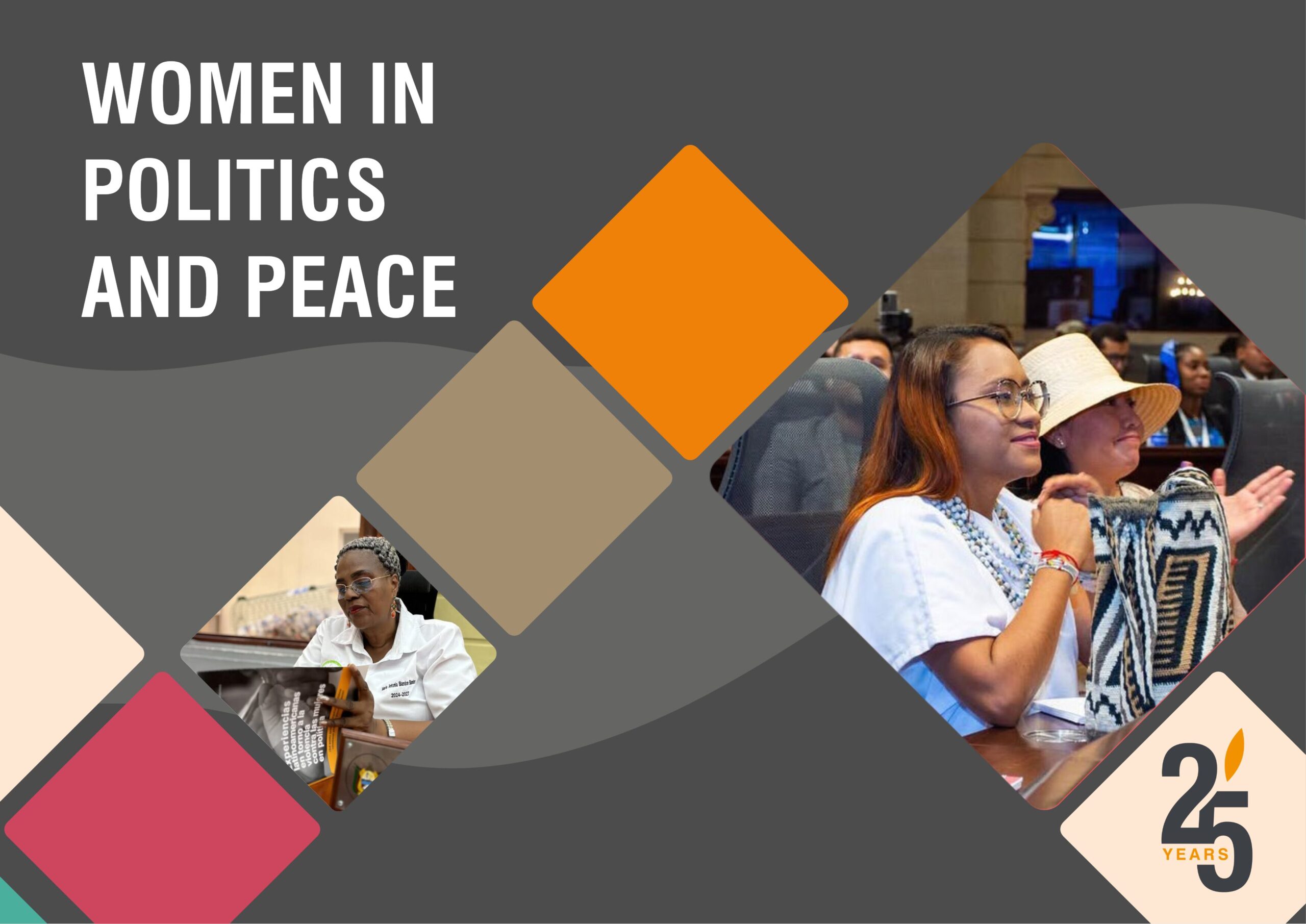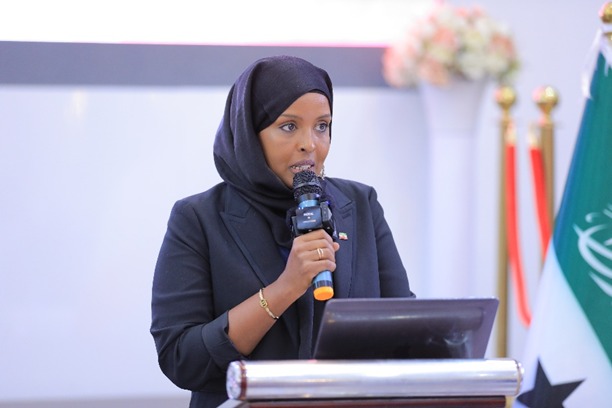Breaking New Ground: Colombia’s Inclusive Journey to a National Action Plan
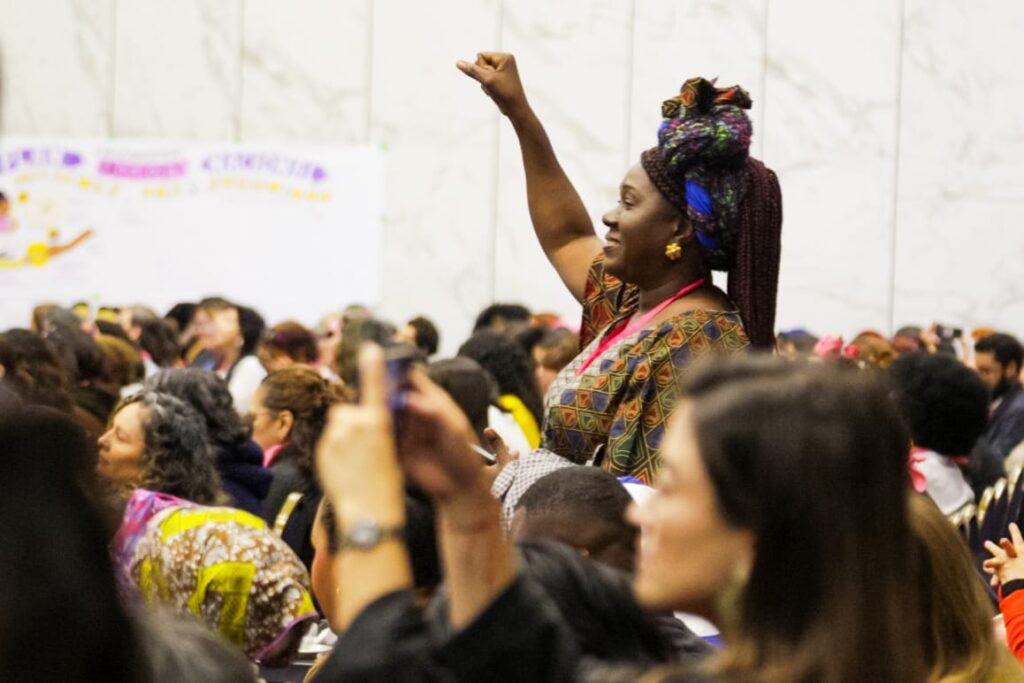
Colombia’s National Action Plan (NAP) 1325. A product of many years of lobbying – more than 20 years to be precise – on ensuring the safety and security of women. An indispensable tool amid the ongoing violence against women, set against a backdrop of historical violence with 400,000 women being killed and 2.7 million displaced due to armed conflict in the country.
In a fight for their recognition as agents for peace, Colombia’s women’s rights organizations and the feminist movement have been asking for a NAP on women, peace and security for decades. NAPs around the world stem from the UN Security Council’s landmark 1325 resolution on Women, Peace, and Security. Although Colombia’s 2016 final peace agreement (with FARC-EP) includes more attention to gender than any other peace agreement globally – still no NAP.
On Saturday, 30 November 2024, this changed as Colombia signs off on its first NAP. The NAP allows the government to be transparent about their plans, commit to specific measures to ensure the implementation of Women, Peace, and Security (WPS), and provides a tool for civil society organizations (CSOs) to hold the government accountable.
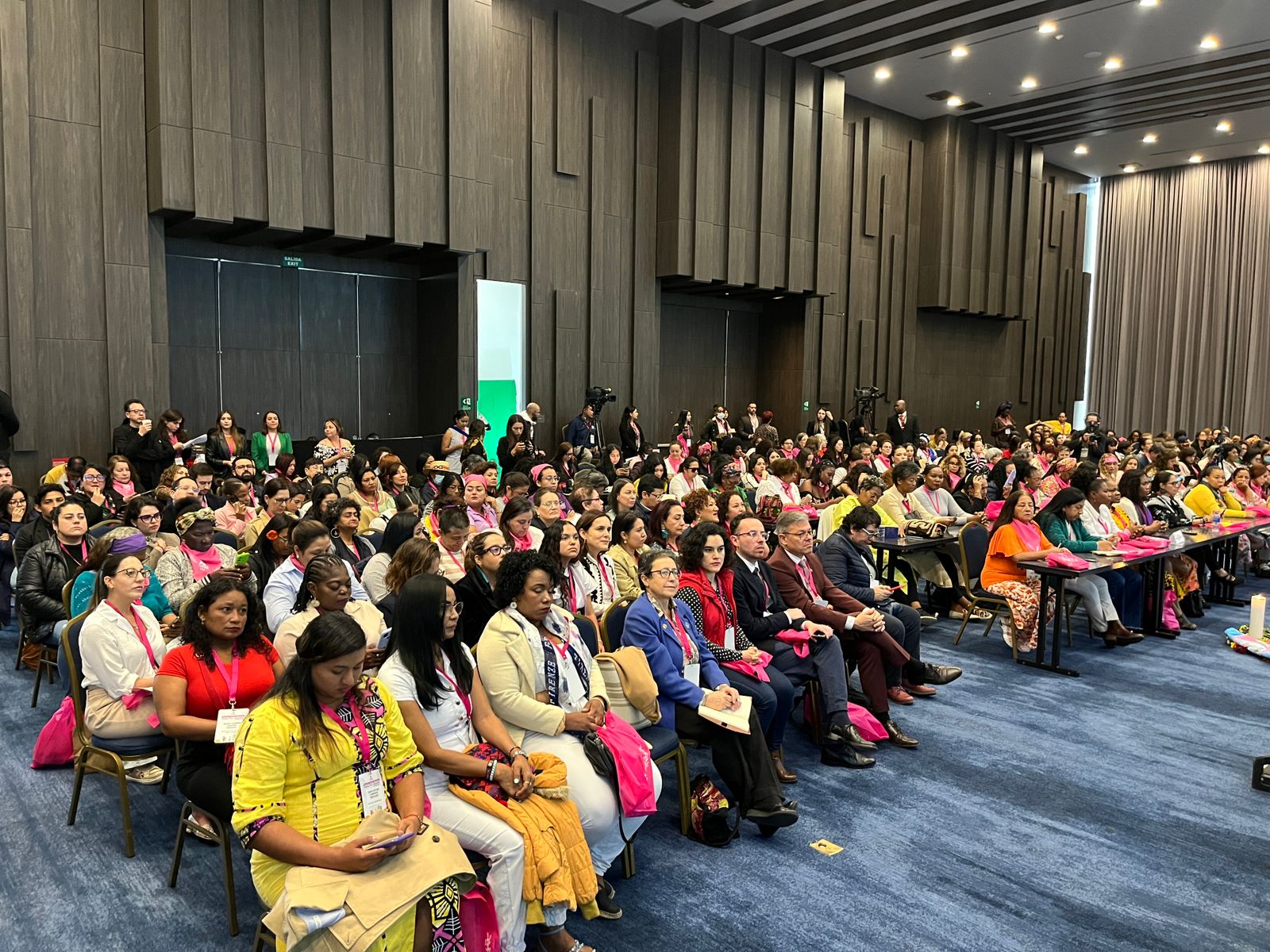
A unique NAP process
While Colombia joins the 109 UN member states that have a NAP, Colombia’s development of their own plan has stood out for its participatory nature. Women in all their diversity from different regions of the country engaged in population and regional forums, where they could voice their needs and priorities to advance the WPS Agenda in their communities and territories. During the almost 6-month consultative period, more than 1500 women were engaged. The Colombian government collaborated with civil society, with the support of UN women and international development cooperation, including NIMD Colombia.
NIMD Colombia, through its work under the LEAP4Peace programme, supported the process with technical assistance and knowledge of the development and implementation of NAPs in other countries. NIMD Colombia also provided support for the inclusive consultation process, facilitating the organization of forums specifically for young women and women signatories of the peace agreement.
The forums, organized by the government, ensured the plan reflected the needs, priorities and perspectives of women from all parts of society. Input was collected from women across different territories, including, but not limited to, indigenous, afro-Colombian, LGBTQIA+ and different age groups. Inclusivity stood central to the process, making Colombia’s approach unique.
This inclusive development process has fostered a significant sense of pride and achievement. However, it has also raised expectations among Colombia’s civil society regarding the NAP’s implementation.
Saturday, 30 November, marked the celebration of this development with the official launch of the NAP 1325 by the Colombian government, which saw the participation of women’s rights organizations from all over the country. NIMD Colombia is proud to have played their part in this significant process to advance women’s participation in peace. We are honored to have had a seat at the table and provided technical, logistical, and financial support to ensure the participation of 14 women leaders and advocates from Bolivar and Meta in the official launch, which took place in Bogota.
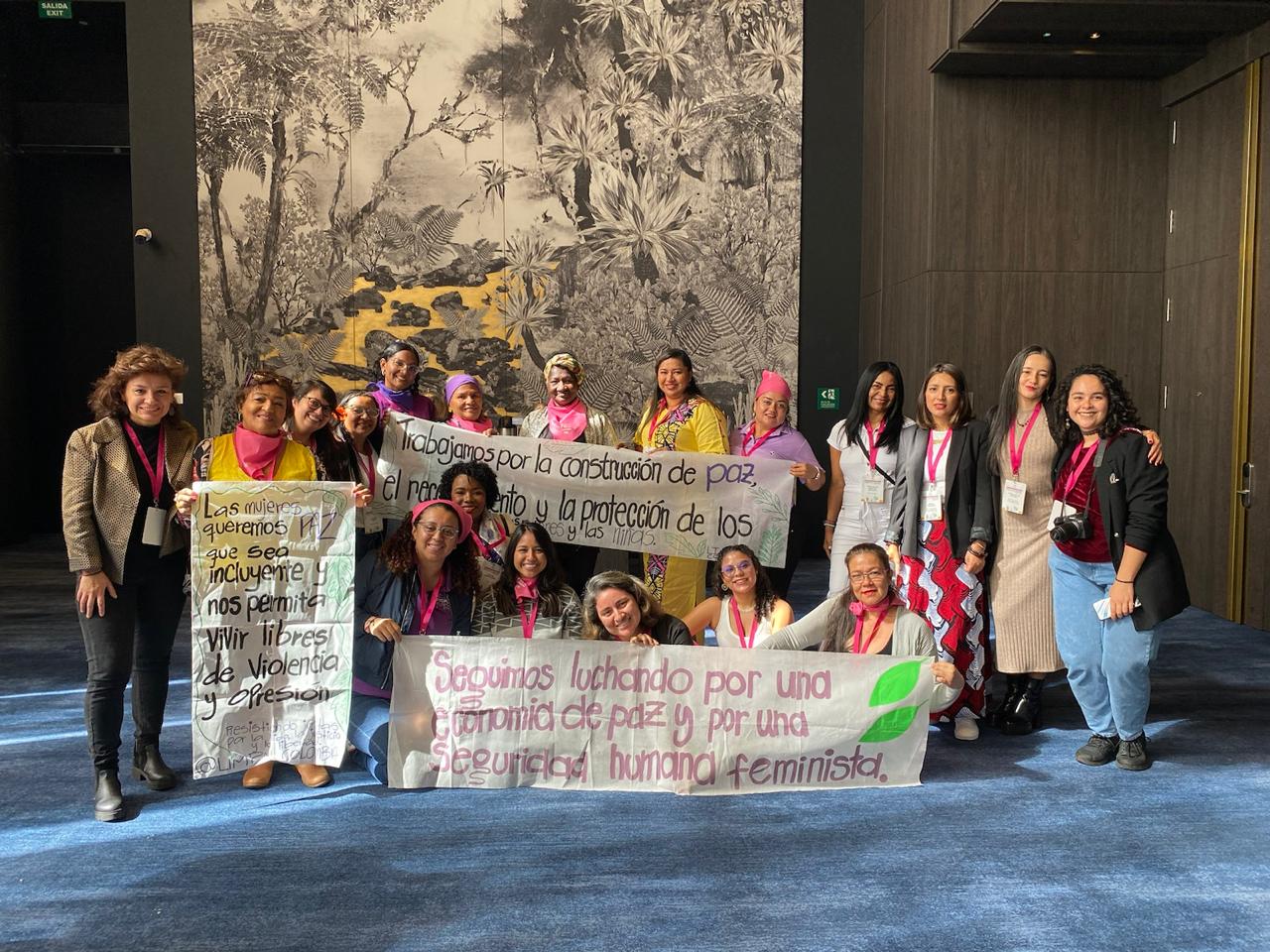
Ensuring its implementation
In 2023, local elections were held in Colombia, and newly elected authorities took office in 2024. To ensure the localization of Women, Peace and Security agenda, NIMD Colombia worked with local women-led organizations to strengthen their advocacy skills. This enabled them to effectively influence and advocate for the inclusion of WPS provisions in the new local development plans of the newly elected local authorities.
From peace to politics.
The NAP also provides a framework to ensure that women are included in Colombia’s peace negotiations. The NAP’s participation pillar includes key actions to ensure the participation and representation of all women in decision-making on security and peace at the local, departmental, and national levels. One of the key challenges of the implementors of the NAP will be to ensure the coordination with other existing initiatives, such as the Final Peace Agreement as well as the Comprehensive Guarantee Plan for Women Leaders.
As women signatories of the Havana peace agreement, we build peace from our valuable experience of years of fighting for the transformation of our country aiming for equal opportunities and conditions for everyone in the struggle for the implementation of the peace agreement and, in particular, for the gender approach that we built in it we are working to ensure that those actions are materialized nationwide. We want the voice, decision, and opinion of women to be heard, and more importantly to be considered in every scenario in Colombia. In this context, the construction of the NAP of UNSCR 1325 is a new opportunity to increase the visibility and to boost the efforts to implement the gender approach. – Manuela Marin-Delegada, Delegate of communes to the commission for monitoring, promoting, and verifying the implementation of the final agreement (CSIVI).
Peace processes represent a pivotal moment in a country’s history. They are moments that shape societies: a one-off chance to resolve conflict and start to build a new future together. Only feasible if all voices are heard.
In 2016, Colombia’s National Government and the militant FARC-EP signed the Final Peace Agreement. NIMD Colombia is included in the peace agreement as a supporter in its implementation, aiming to strengthen the democratic capacities and cooperation between national authorities and political parties, but also to ensure that all voices are heard. The women of Colombia are an important voice.
The NAP is a tool to ensure their voice is included – it confirms the commitment and the specific measures to ensure that women are included in leadership positions, from peace processes to politics. NIMD works to ensure this inclusion.
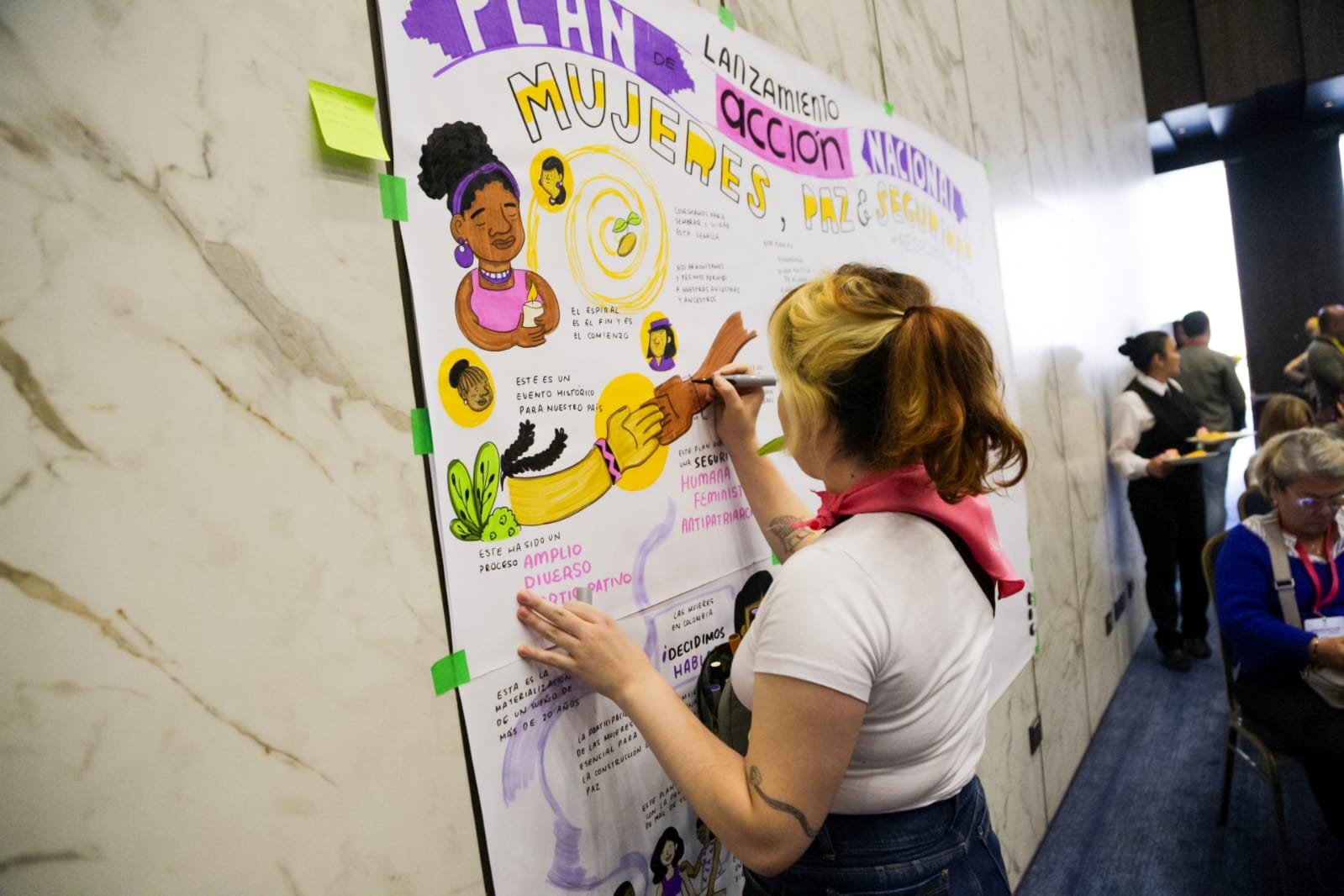
16 Days
The signing of the NAP fell during the international 16 Days campaign, which highlights the global issue of gender-based violence. Alarmingly, 86% of women parliamentarians all over the world report psychological violence, threats of abduction, rape, and even death. And with the rise of social media, women politicians are disproportionately targeted online.
In Colombia, in 2020, almost 70% of women in politics report facing psychological, sexual, physical political or verbal violence. In a recent survey by Observatorio Colombiano de Las Mujeres — of which 144 of the participants being women political candidates in the 2023 local elections – 69% reported hostile and exclusionary. This violence limits their participation in politics.
Women make up 51.2% of the country’s population and account for 51.6% of the electorate. Their participation and political representation are not only a question of rights, but also of justice and recognition of a population that has historically been underrepresented in politics.
Today is the last day of the 16 Days campaign, but the work to ensure that women are free from violence doesn’t stop. Find out more about the campaign and how you can contribute outside of the 16 days here.

